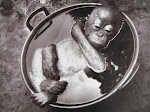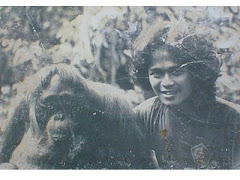
The Jakarta Post , Jakarta Mon, 08/06/2007 12:41 PM Jakarta
The Jakarta Post, Jakarta
Residents from Wangkal village in Bekasi have turned their personal story of poor sanitation, disease and death into a theatrical production to help highlight for others the importance of using clean water and living a healthy, hygienic existence.
""We used to defecate outside in cans and drink water from a shallow pit,"" said Rohayah, one of the production's cast members. ""We would wash our vegetables and do our laundry in the same water,"" she said.
Rohayah said people from her village had previously been oblivious to the importance of clean water, or just believed it was a luxury they could not afford. But she said their combined ignorance often saw her fellow villagers suffer diseases caused by poor sanitation, including diarrhea and skin infections. Rohayah and company's play illustrates how the villagers eventually learned the importance of good hygiene through aid and education provided non-government organization USAID and a charity foundation run by Coca Cola.
Rohayah said she and her fellow villagers had learned to improve their quality of life by changing their attitude toward sanitation. Their theatrical production is part of a program called Love the Water, a joint initiative between USAID and the Coca Cola Foundation.
The educational production focuses on water conservation and uses previous unhygienic practices in Bekasi as an example of what not to do. The production was held Sunday in Menteng Park, Central Jakarta. USAID's head of water and conservation Alfred Nakatsuma said the program was focused on Bekasi but the play was intended to inspire all people, including Jakartans, to become more aware of their own health.
Environmental researcher with the foundation Edy Hendras said the rivers in Bekasi were all in a very poor condition compared with rivers in Jakarta. He said water from Bekasi's rivers was still unsuitable for human consumption because of the very high levels of factory waste.
Edy said proper wells could help filter the waste from the river water, but not all residents could afford the required infrastructure.
The water education program would also include the construction of public toilets, an educational campaign for school students and overall improvements to existing wells. The environmental non-governmental organization WWF said in 2006 Bekasi had about 3,000 factories, most of which were dumping waste into the river system. Poor sanitation and dirty water combined with the Betavi villager's overall poor health was the prompt they needed to step in and help, Edy said.
Foundation chairman Mugijanto said, ""Schools are a perfect place to increase awareness of the importance of water conservation"".
""Students are also expected to inspire other people about this message." Students at Menteng Park demonstrated the lessons they had learned, including paper recycling and tree planting. The participating children also had some fun with a rubbish bin in the park.
""We're trying to make the bin more beautiful, so at least it will attract people to throw their garbage at the right place,"" said Alan, a third-year student at junior high school SMP 6 Bekasi as he helped paint the bin. (13)












0 komentar:
Posting Komentar